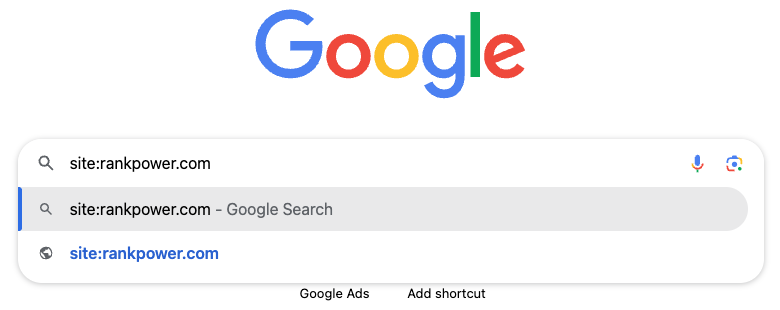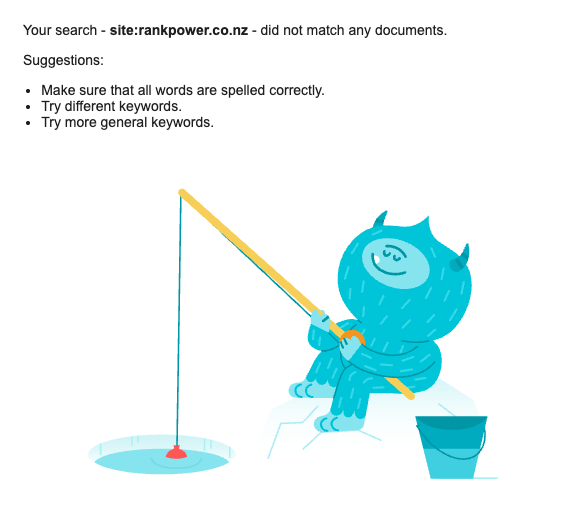Is Your New Website Indexed by Google?
Two Methods to Check.
By Perry Bernard , for RankPower Ltd (NZ
A Practical Guide to Understanding and Measuring Google’s View of Your Website:
Launching a new website is a thrilling milestone, but it often comes with a wave of uncertainty: Is my site actually showing up on Google? Indexing—the process by which Google adds your site’s pages to its search database—is essential for being found by potential visitors. If your website isn’t indexed, it’s essentially invisible to the world’s most popular search engine, so unless people type in exactly what your web address is into their browser, they can’t find it.
Fortunately, there are straightforward ways to check your site’s index status, and powerful tools to monitor and measure much more than just visibility. In this article, we’ll explore two primary methods for checking whether your site is indexed: using Google’s ‘site:’ operator and leveraging Google Search Console. I’ll walk you through the steps for each, and highlight additional features in Search Console that can help you optimise your site’s presence and performance in search.

Method 1: Using the ‘site:’ Operator in Google Search
One of the quickest methods to check whether Google has indexed your website is by using the ‘site:’ search operator. This is a simple, direct way to see which of your web pages—if any—are currently included in Google’s index.
How It Works
The ‘site:’ operator allows you to query Google’s index for a specific domain or URL. When you type “site:yourdomain.com” into Google Search, the results page will display all the pages from your website that Google currently knows about and has indexed.
Step-by-Step Guide
- Open your web browser and go to Google search.
- In the search bar, type “site:” immediately followed by your full domain name (for example, site:rankpower.com). Don’t include any spaces.
- Press Enter. Google will return a list of results, each corresponding to a page from your website that is currently indexed.

Interpreting the Results
- If you see results: Google has indexed at least some pages from your site. Look through the list to get a sense of which pages are included.
- If you see “No results found” or a similar message: Google has not yet indexed your website or the specific pages you searched for. This may be normal for a recently launched site, but it is worth further investigation if the site has been live for more than a week or two.

Advantages and Limitations
The ‘site:’ operator provides a fast, no-frills snapshot of your indexed pages. However, it is not always perfectly up-to-date. Sometimes, Google may have indexed new pages that don’t appear yet in a ‘site:’ search, or it might show outdated URLs. This method also won’t tell you ‘why’ it’s not indexed.
For a more accurate and comprehensive picture, you’ll need to use Google Search Console.
Method 2: Using Google Search Console
Google Search Console (GSC) is a free, robust tool offered by Google to help website owners monitor, maintain, and troubleshoot their site’s presence in Google Search results. If you’re serious about your website, setting up Search Console should be considered essential for every website owner and anyone wanting to be found in Google Search.

Getting Started with Google Search Console
- Google “google search console”, find the official Google site, and sign in with your Google account.
- Add your website as a Property by entering your site’s URL and following the verification process. Google provides several verification methods (like uploading an HTML file, adding a DNS record, or inserting a meta tag in your site’s code). Pay attention to the instructions. You may need a small amount of help from your web developer or IT specialist.
- Once verified, you’ll gain access to a dashboard full of insights and tools.
Checking Index Status in Search Console
Search Console gives you definitive, real-time data about what pages Google has indexed from your site.
- On the left-hand menu, click on “Indexing > Pages” menu item.
- Here, you’ll see a report summarising how many pages have been discovered, indexed, or excluded, and details about any issues encountered during crawling or indexing.
- To check a specific page, use the search bar at the top labelled “Inspect any URL in [your website].” Paste the full URL of the page you want to check and press Enter. Search Console will tell you whether the page is indexed, and if not, it will provide guidance on why it might be excluded.

The website stated here will be your own website.
Requesting Indexing
If you discover that certain pages (or your whole site) aren’t indexed, you can request indexing directly in Search Console:
- Use the URL Inspection tool to enter the specific URL.
- If the page isn’t indexed, click on “Request Indexing.” This will prompt Google to crawl and (if appropriate) index the page sooner than it might otherwise.
Why Might Your Site Not Be Indexed?
There are many reasons Google may not have indexed your site yet:
- The site is too new and hasn’t yet been crawled.
- Your site is set to “noindex” via meta tags or robots.txt.
- Your site is not accessible to Googlebot due to technical errors or restrictions.
- There are duplicate content issues or low-quality pages.
- Google’s crawl budget for your site is limited and has not yet reached all pages.
Search Console provides detailed reports and warnings if such problems are detected, allowing you to address issues directly.
What Else Can You Measure with Google Search Console?
While checking index status is often the first concern, Search Console offers a wealth of additional data and tools that are invaluable for website owners.
Performance Reports
The Performance section provides detailed analytics on how your site appears in Google Search, including:
- Number of organic clicks and impressions your pages receive
- Average position in search results
- Click-through rate (CTR) for your search results
- Top queries (search terms) driving traffic to your site
- Breakdowns by device, country, and more
These insights help you understand what’s working and where there’s room for improvement in your SEO efforts.
Coverage Reports
Beyond checking if pages are indexed, the Coverage report details why pages may be excluded, such as:
- Submitted URL marked ‘noindex’
- Blocked by robots.txt
- Page with redirect
- Duplicate content
- Soft 404 errors and other crawl anomalies
By resolving these issues, you can improve your site’s overall visibility.
Sitemaps
You can submit a sitemap through Search Console, helping Google discover all your important pages faster. Search Console tracks when your sitemaps are read and processed, and flags any errors.
Mobile Usability
Google’s index is now mobile-first, meaning mobile usability is a ranking factor. The Mobile Usability report flags problems that might make your site less friendly to smartphone or tablet users.
Security Issues and Manual Actions
If Google detects security problems (like hacked content, malware, or phishing) or applies a manual penalty to your site, Search Console will alert you immediately. This allows you to respond quickly to recover your site’s reputation and rankings.
Links
The Links report shows which sites are linking to yours (backlinks), as well as your most linked-to pages. Backlinks are a significant factor in search rankings, so monitoring them can reveal valuable opportunities or problematic trends.
Enhancements
Depending on your site’s content, you may see additional reports for structured data, rich results, Core Web Vitals (page speed and user experience metrics), and more. These help you optimise your site for a broad range of search features.
Conclusion
When launching a new website, ensuring that Google has indexed your pages is a critical first step toward online visibility. The ‘site:’ operator in Google Search provides a quick, informal check, while Google Search Console offers authoritative, comprehensive, and actionable data. By using both tools, you not only verify your site’s presence on Google but also gain access to a treasure trove of insights that can guide your site’s growth, performance, and security.
As your website evolves, make it a habit to regularly consult Search Console. It’s the closest view you’ll get into how Google sees your site—and the best way to stay ahead in the ever-changing world of Google search.

